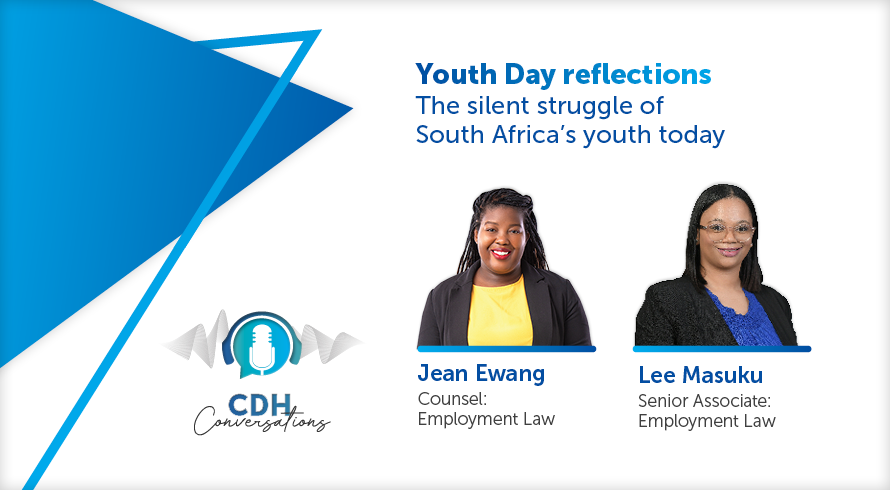The Social Health Insurance Act and its implications
At a glance
- In a Gazette Notice on 21 November 2023, the Cabinet Secretary for Health designated 22 November 2023 as the commencement date of the Social Health Insurance Act, 2023 (SHIA). This act repeals the National Health Insurance Fund Act, 1989 to establish a framework for the management of social health insurance.
- In a recent ruling, the High Court suspended SHIA's implementation until February 2024 on grounds of lack of proper public participation.
- SHIA's salient features include inter alia establishing the Social Health Authority (SHA) as the overarching regulatory body to register beneficiaries and manage funds established under the act.
SHIA’s salient features include inter alia establishing the Social Health Authority (SHA) as the overarching regulatory body to register beneficiaries and manage funds established under the act. Subsequently, three new funds have been established under SHIA including the Primary Healthcare Fund (PHF), Social Health Insurance Fund (SHIF), and the Emergency, Chronic and Critical Illness Fund (ECCIF).
Every person resident in Kenya (including non-citizens who are granted lawful residence in Kenya) is obliged to apply for registration to the SHA within 90 days of the commencement of the Social Health Insurance (General) Regulations, 2023 (SHIA Regulations). An application for registration is to be made in the prescribed form and accompanied by a copy of the applicant’s national identification documents. A contributor may list beneficiaries in the application at the time of registration to enable the beneficiaries to access the benefits under their cover. Parents and guardians are also required to apply for registration of their child within 14 days of the child’s birth.
People currently registered as members of the repealed NHIF Act are required to register afresh as members of the SHIF. Further, households with income from salaried employment are to pay a monthly statutory contribution to SHIF at a rate of 2,75% of the gross salary or wage of the household by the ninth day of each month. For instance, a household whose gross salary or wage is KES 100,000 will contribute KES 2,750 every month. For purposes of SHIF, a household is a social unit comprising of an eligible contributor, whether contributing by themselves or paid for, and their beneficiaries, or who share the same socio-economic needs associated with consumption and production.
On the other hand, households whose income is not derived from salaried employment will pay an annual contribution to SHIF at a rate of 2,75% of the proportion of household income determined through the means testing instrument under the SHIA Regulations. In terms of the means testing, the SHA will collect data from households for the purposes of conducting proxy means testing to estimate such households’ income. This data will be based on various socio-economic aspects including housing characteristics, access to basic services, household composition and characteristics, and any other relevant socio-economic aspects.
Employer contributions
All employers are required to deduct the contributions of salaried contributors and submit the contribution to the SHA by the ninth day of each month. When an employer terminates the employment of a salaried contributor, the employer will be required to notify the SHA within 30 days and remit the final contribution of the employee. Conversely, empanelled healthcare providers or health facilities should lodge claims with the claims management office for the payment of healthcare services provided to the beneficiaries of the SHIF, after which the SHA then pays the claims lodged based on the prescribed tariffs.
SHIA exemplifies a landmark transformation in the Kenyan healthcare sector. The introduction of the PHF, SHIF and ECCIF will secure publicly funded primary healthcare, universal insurance, and equitable access to quality health services. Notwithstanding the foregoing, SHIA’s suspension by the High Court means that its implementation will be delayed until the court case challenging its constitutionality is determined.
The information and material published on this website is provided for general purposes only and does not constitute legal advice. We make every effort to ensure that the content is updated regularly and to offer the most current and accurate information. Please consult one of our lawyers on any specific legal problem or matter. We accept no responsibility for any loss or damage, whether direct or consequential, which may arise from reliance on the information contained in these pages. Please refer to our full terms and conditions. Copyright © 2026 Cliffe Dekker Hofmeyr. All rights reserved. For permission to reproduce an article or publication, please contact us cliffedekkerhofmeyr@cdhlegal.com.
Subscribe
We support our clients’ strategic and operational needs by offering innovative, integrated and high quality thought leadership. To stay up to date on the latest legal developments that may potentially impact your business, subscribe to our alerts, seminar and webinar invitations.
Subscribe




